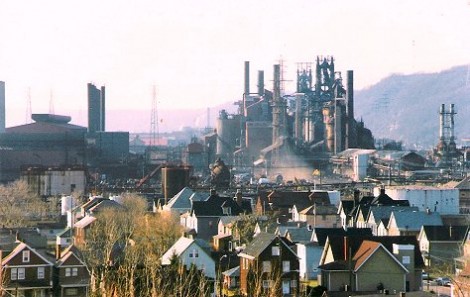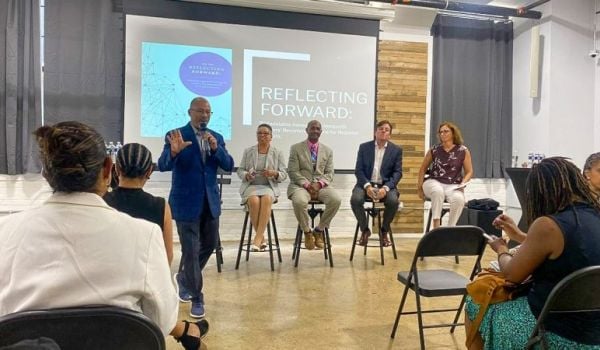
Somehwere between Wall Street and Main Street. Photo by Bob Dorsett.
“The stimulus package must reflect the promises of the new administration—promises to build a sustainable economic future that recognizes the value of strengthening urban cores of metropolitan areas as well as smaller towns…”
It then goes on specify these promises for the President-Elect:
“This vision should direct the distribution of federal stimulus funds for infrastructure in ways that focus on fixing the existing infrastructure instead of building new highways; investing in public transportation and rail systems that can open up access to jobs while reducing vehicle miles traveled; rehabilitating and making energy efficient existing and historic structures; training workers for green jobs; addressing aging combined sewer overflows that spill pollution into our waterways and waste precious water resources; and investing in communities that have struggled to deal with foreclosed, abandoned and vacant properties that continue to pull down the value of housing while overwhelming local officials’ ability to provide services.”
The request differs from Nutter’s in its regional specificity, in the specificity of its planned uses for requested money, and in providing a (rough) cost-benefit analyses for its pro-retrofitting/anti-new-building plan. And while this gives the letter much less of a “if you give a mouse a cookie…” feel than Nutter’s, it’s very practicality and regionalism, as well as it’s signers, make it much less flashy than the mayor’s urgent walk up the treasury’s steps, which may also prove much less newsworthy. Still, with the work of Nutter’s letter and the recent mayoral roundtable as groundwork, the Restoring Prosperity letter could arrive at just the right time. Perhaps Henry Paulson will finally be able to see the crumbling concrete of cities through the fog of the ailing virtual non-money that he claims must be the primary target of government aid. Or perhaps he doesn’t have to, and can afford to continue to wait for his aid package to trickle down to those of us in the material world.















